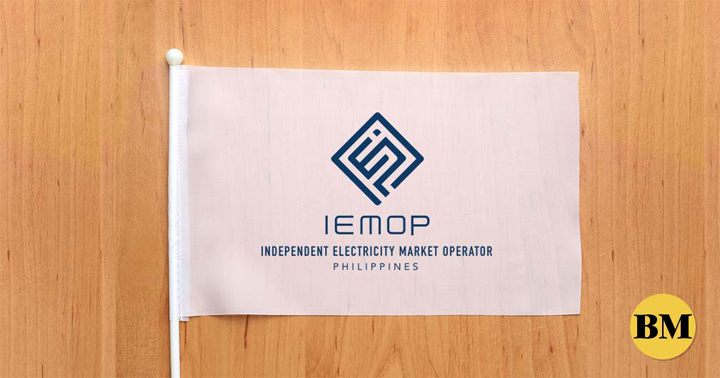IEMOP: Time to review, but not junk, the SPC on traded power
BY LENIE LECTURA – MARCH 27, 2023
from Business Mirror

THE Independent Electricity Market Operator of the Philippines (IEMOP) agrees that the secondary price cap (SPC), a mechanism that puts a ceiling on traded power whenever prices shoot up in the Wholesale Electricity Spot Market (WESM), should be reviewed but not scrapped.
“We believe the SPC policy itself should be retained but it should be reviewed. But as to how much, we also agreed that it should be reviewed because of current circumstances,” said IEMOP President Richard Nethercott, referring to the rising cost of fuel and gas prices. “You have your additional compensation claims which also increase and SPC has triggered that. So, what we’re recommending is a holistic review,” he said.
The Energy Regulatory Commission (ERC) has already commenced the SPC review. While the secondary price cap is being implemented to protect consumers from higher WESM prices, the imposition of the cap curtails new investments in the energy sector.
ERC initial analysis showed that, with SPC in place, price signals are distorted and actual market results do not necessarily reflect the true cost of generation. This blurs planning exercises on energy security and dampens investors’ interest in the Philippine power generation sector.
“The SPC is price-triggered. But let us revisit what is the purpose of SPC. The SPC was there only as an interim measure and only for certain occasions, and then it became a permanently placed cap. All these things need to be reviewed and considered. We are more confident now that the price that we’re gonna come up with is more aligned with reality,” said ERC Chairperson Monalisa Dimalanta last week.
The Philippine Independent Power Producers Association Inc. (PIPPA) proposed that SPC should be “higher than P10,000 per megawatt hour (MWh),” or P10 per kilowatt hour (kWh).
“We submitted our position paper to the ERC. It includes price triggers but the ERC wants us to fine-tune it,” said PIPPA President Anne Montelibano.
At present, the SPC is at P6,245 per MWh or equivalent P6.245 per kWh within the P9,000 per MWh threshold on a rolling 72-hour trading interval set by the ERC.
PIPPA reiterated that the present cap does not reflect the real situation of the energy sector. “As early as 2014, PIPPA has been advocating the removal of the SPC to provide proper price signal for additional investments in the generation sector,” the group had said.
Earlier, Energy Secretary Raphael Lotilla identified the SPC as one of the “stumbling blocks” that prevent the entry of new investors in the Philippine power sector.
“The secondary price cap has been imposed way back in 2013, but this has been difficult to lift at this time because of the impact on prices. But we will have to deal with this if we want to attract more investments down the line,” Lotilla said.


